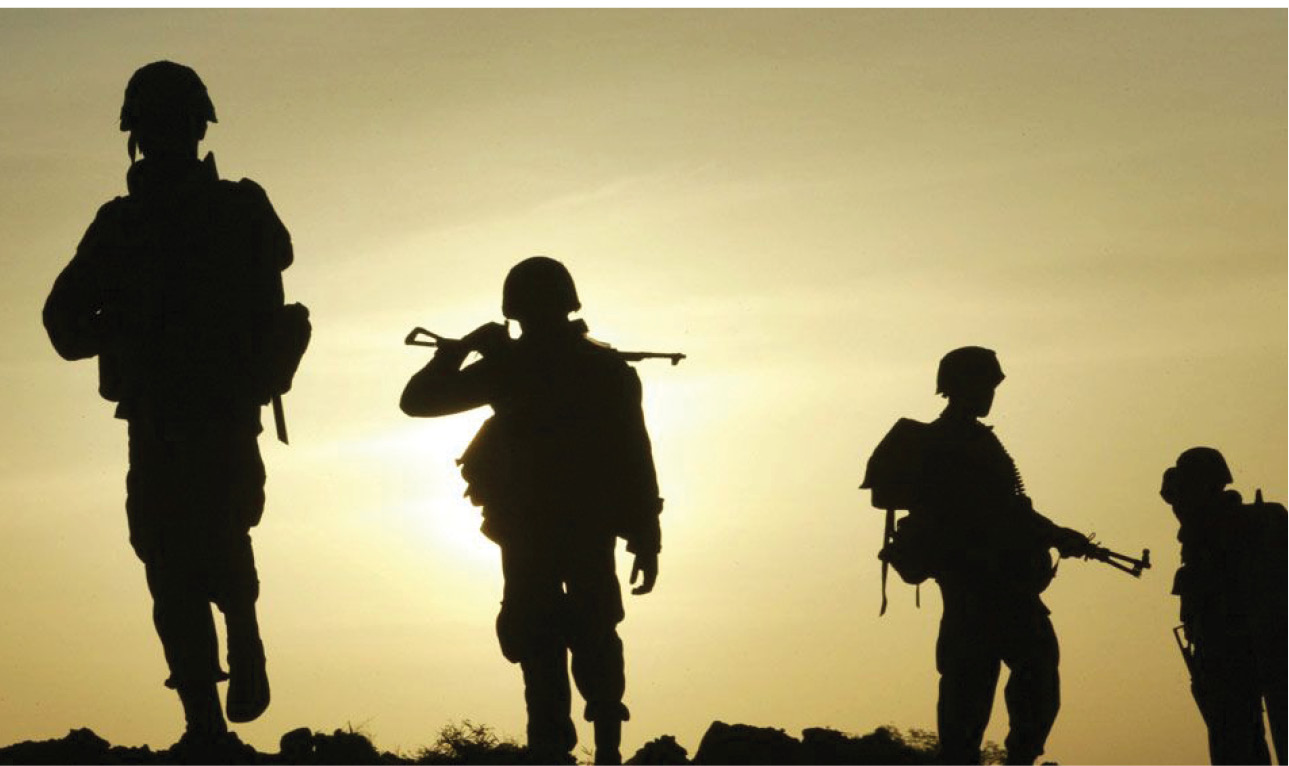In the face of the myriad political, economic, and social challenges confronting our country, the Armed Forces of Nigeria remain a beacon of hope, safeguarding national interests and maintaining law and order. Spanning the swamps of the Niger Delta to the arid terrains of the northeast region, our men and women in uniform have showcased outstanding patriotism in their fight against various forms of insecurity such as militancy, oil bunkering, kidnapping, and terrorism.
As someone from Borno State, I aim to highlight and appreciate the multifaceted efforts of the Nigerian Armed Forces, police, and State Service personnel. Their relentless dedication and courage have been paramount in making Nigeria a safer place for us all. In their quest to ensure the safety of the populace, many have made the ultimate sacrifice, epitomizing the highest level of patriotism for the greater good of the Nigerian people. These men and women in uniform are our unsung heroes. Though our country currently faces numerous security challenges, with resilience, we can surmount them.
The Niger Delta, a resource-rich region, has long struggled with militancy and activism, primarily centred around resource control and environmental issues. The armed forces have taken decisive actions involving numerous operations, intelligence-gathering activities, and community dialogues to restore stability.
Through initiatives such as Operation Delta Safe, they have substantially reduced violence, shielded critical oil installations, and promoted a more harmonious coexistence among the diverse communities in the region.
- Palliatives: Hoodlums hijack truckloads of rice in Kwara
- Kwara graduating students face panel for grabbing colleague’s breasts during sign-out ceremony
Oil bunkering, characterized by the illegal extraction of oil, has plagued the Nigerian economy and significantly contributed to the environmental degradation in the Niger Delta. The armed forces have been instrumental in combating this menace through rigorous maritime patrols, surveillance, and targeted operations against recognized bunkering hubs. Their interventions have curtailed not only financial losses but have also been pivotal for environmental conservation.
Another pressing concern is the rampant kidnappings in the central region of Nigeria. The rise of kidnappings, especially along the country’s major highways and in isolated areas, poses a significant threat. Yet, through military patrols, intelligence undertakings, and collaborations with other security agencies, the armed forces have markedly decreased such incidents. They have successfully executed several rescue missions, providing solace to distraught families.
Confronted with these challenges, the Nigerian security agencies have notably triumphed in countering the threat of Boko Haram and other extremist factions. One of the gravest challenges Nigeria faces today is combatting these extremist elements. However, the armed forces have made commendable strides, reclaiming territories, liberating captives, and diminishing the operational strengths of these terrorist organizations. The military bases in the northeastern region act as robust bastions against insurgent activities, with continuous efforts to rebuild and stabilize the affected communities.
Beyond combat, the armed forces have pro-actively engaged in community relations while upholding human rights. Their humanitarian endeavours, including medical missions and educational initiatives in distant regions, have endeared them to the local populace. These outreach activities not only foster trust but also gather invaluable intelligence, enhancing the overall efficacy of their operations.
Despite their relentless efforts, it is essential to recognize the challenges that the armed forces grapple with, encompassing logistical constraints, manpower shortages, and occasional human rights concerns. While constructive criticism is essential for growth, it must not overshadow their monumental contributions and sacrifices.
The commitment and dedication of the Armed Forces come at a profound personal cost. It is well known that many soldiers have sacrificed their lives, leaving behind grieving families. Their sacrifices underscore the value of the security that many often take for granted. It’s imperative that we honour their memory, and it’s equally vital for the government to provide support to the families of these heroes, ensuring their sacrifices are never forgotten.
In fact, the governor of Borno State, Professor Babagana Umara Zulum, actively supports the families of fallen heroes. This commendable act is worthy of emulation by other state governors and local government chairmen.
It’s evident that the challenges Nigeria faces are multifarious and intricate. A holistic strategy that transcends military intervention is imperative to tackle them. Addressing underlying causes of insecurity, including poverty, unemployment, and education gaps, is indispensable for enduring peace. The government must take a proactive stance, fostering economic growth, social inclusion, and robust governance.
Furthermore, enhanced collaboration between the Armed Forces, other security institutions, and global partners is paramount. A synergistic approach involving shared intelligence, coordinated operations, and resource optimization can amplify the efficacy of our security apparatus, especially given the transnational nature of some threats.
In light of these challenges, prioritizing investment in the welfare and capabilities of the armed forces is non-negotiable. Adequate funding, training, and equipping will not only elevate their morale but also augment their proficiency in addressing the nation’s challenges.
The Armed Forces of Nigeria symbolize not merely a military establishment but our national unity and patriotic fervour. Their steadfast devotion to peace and security warrants our unequivocal admiration. As citizens, we’re obligated to provide moral and societal support to these brave individuals.
Our shared resilience is anchored in their sacrifices, and they unequivocally deserve our respect and gratitude. In lauding their courage, dedication, and indomitable spirit, we anticipate a more secure and thriving Nigeria, fortified by the principles they bravely defend.
Adam, Ph.D., wrote from Abuja

 Join Daily Trust WhatsApp Community For Quick Access To News and Happenings Around You.
Join Daily Trust WhatsApp Community For Quick Access To News and Happenings Around You.

